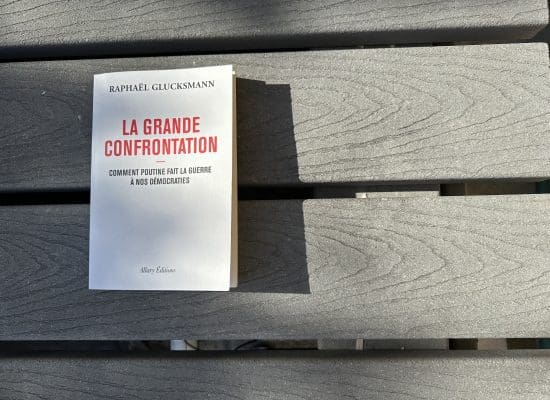Post photo: reading girl | Bookshelf | S. Hermann & F. Richter | © Pixabay
Today I would like to recommend four books that I have read recently. Two of them are from Timothy Snyder, which can currently be found in all media due to the Ukraine war. The book of Bruce H Lypton was me from Javier Giner put to the heart and that of Sarah Bakewell I received it as a gift in a German translation.
The Road to Unfreedom : Russia > Europe > America (2018)
Already 2018 has Timothy Snyder published this fascinating book. The only thing that bothers me about this book is that I didn't read it in 2018. The 284 paperback pages, without the endnotes, read very fluently, with Snyder unmasking the Putin system in a very understandable way and listing those who made it possible and those who profited very clearly, sometimes even by name.
He names some of the known crimes of Vladimir Putin, including the downing of MH17, debunks some of the myths, particularly of totalitarian politicians in Europe, such as the NATO threat to Russia, and also details the contacts between the Russian oligarchs and Donald Trump. He warns us very clearly of the consequences if we don't start to wake up and defend our values. Otherwise, the free world could very quickly be a thing of the past.
My definite favorite term in the book is “sado-populist” (2018:274)
"[We] raised a millennial generation without history." (2018: 7)
"In The Peloponnesian Wars, Thucydides defined 'oligarchy' as rule by the few, and opposed it to 'democracy'." (2018: 11)
"Do we understand that being an individual requires a constant consideration of endless factuality, a constant selection among many irreducible passions?" (2018: 35)
"The extremely Right and Left should instead be drawn together as a bicephalous icon." (2018: 58)
"Brexit was a major triumph for Russian foreign policy, and a sign that a cyber campaign directed from Moscow could change reality." (2018: 106)
"Nations are old things that refer to old things." (2018: 112)
"Where there are local reporters, journalism concerns events that people see and care about. When local reporters disappear, the news becomes abstract. It becomes a kind of entertainment rather than a report about the familiar.” (2018: 247)
"Oligarchy works as a patronage system that dissolves democracy, law, and patriotism." (2018: 264)
"Politics is international, but repair must be local." (2018: 277)
"Communication among citizens depends upon equality." (2018: 281)
My recommendation: Buy the book right here. (German | Amazon)
On Tyranny: Twenty Lessons from the Twentieth Century (2017)
This book by Timothy Snyder is a must read for every Democrat on both sides of the Atlantic. The book is about DinA5 in size and has 126 pages, so it can be read very quickly - but digested less quickly!
Amazing what Timothy Snyder already in 2017 — about the cause Donald Trump beyond - so clearly formulated, especially today in the current situation! If we had taken his comments even halfway seriously, it would have saved us a great deal.
"Any election can be the last, or at least the last in the lifetime of the person casting the vote." (2017: 29)
"Life is political, not because the world cares about how you feel, but because the world reacts to what you do." (2017: 33)
"Professional ethics must guide us precisely when we are told that the situation is exceptional." (2017: 41)
"Take responsibility for what you communicate with others." (2017: 72)
"The danger we now face is of a passage from the politics of inevitability to the politics of eternity, ..." (2017: 124)
My recommendation: read the book by all means. Buy it right here … (Amazon)
As a small bonus, you can find an interview with him here Timothy Snyder about a politics of eternity, one of inevitability and why we are players in a democracy - but not referees: "There are always options(International Politics)
The Biology of Belief 10th Anniversary Edition: Unleashing the Power of Consciousness, Matter & Miracles (2015)
Javier Giner got me on the book by dr Bruce Lipton drew attention to it, which he had already read in 2005. Javier said it will change my life, at least the way I look at it.
This book summarizes Lipton's experiences and insights gained during his many years of research and teaching as a physician. He has blossomed from a traditional researcher, probably also because of his own biography, to a proponent of alternative treatment methods. He is firmly convinced that environmental influences play a far greater role than previously assumed and believes that through positive thinking and a correspondingly led life (!) one can "reprogram" one's body for the better.
He thus joins a long line of traditional as well as modern spirits, of which the homeopaths cannot convince me at all, even if I do not want to deny the effect of the placebo effect.
Bruce liptons arguments are, however, quite understandable and can hardly be denied without your own specialist knowledge. And so keeps Javier Giner Right, the book changed my perspective, at least on alternative medicine, and reaffirmed my belief in listening to my own body again and trying to transform my own life through positive thinking.
The Existentialists' Cafe (2015)
When I read a first review of the book “At the Existentialist Cafe" from Sarah Bakewell I bought it, only to put it down again after a first reading attempt, because I lost myself far too quickly in the philosophers Bakewell addressed and their works.
In 2020 I got the book in a German translation from Rita Seuss as a gift, which certainly made reading a little easier for me, but I got lost again and this time I stayed the same Jean-Paul Sartre hang. But before I look at “The Second Sex” by Simone de Beauvoir bought, I dared to start reading again, with the intention of reading the book in its entirety before I got bogged down again.
Sarah Bakewells own conclusion is "Ideas are exciting, but the people who express them are even more so." (2018: 369) And with that she arguably embodies more of a feminist view of philosophy, but makes the ride through two philosophies at once , phenomenology and existentialism, very entertaining and worth reading - if you get involved and don't get bogged down again and again.
What I particularly like about the book is that it draws on some of the novels and films I also value and connects them with existentialism in a way that I can understand.
All in all, the book arouses curiosity and has contributed to the fact that I put one or the other older ham back on my stack of books to be read again. In particular, however, she got me interested in reading Simone de Beauvoir made curious. I will save myself their four-volume biography, but I will definitely read their main work at least once.





